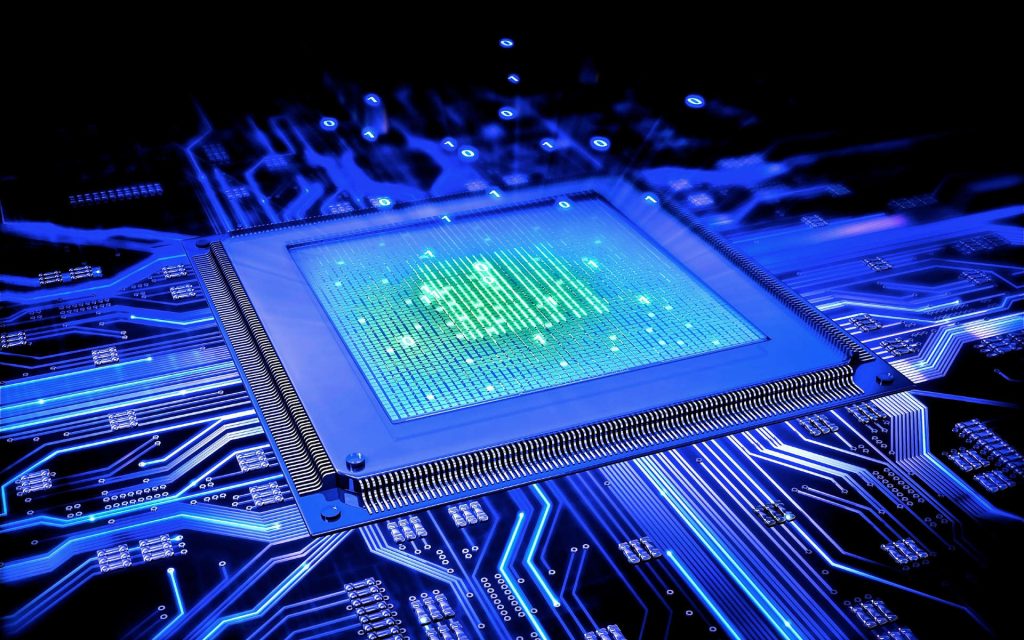… [Trackback]
[…] Find More here on that Topic: blog.neterra.cloud/en/why-is-silicon-used-for-computer-chips/ […]

During the ’50s, the tech world found a reliable partner in silicon.
Let’s just say that thanks to silicon instead of having room-sized computers, we’ve got laptops we can take everywhere. This material was the reason to leave behind the old circuit design, miniaturize it,make it faster and much more affordable for everybody.
Yes, the development of the integrated circuit (IC) improved the situation by setting the different electronic circuits of a computer on just a piece of semiconductive material called a “chip”. IC left behind the old and fragile vacuum tubes, reduced the size of computers, allowing for their mass-production.
In the periodic table, this chemical element belongs to the carbon group that includes carbon, germanium, tin, lead, and flerovium. Identified as “Si”, it is the eighth-most abundant element in the universe by its weight. And if we just talk about our planet, 28.2% of the Earth’s crust contains silicon. So there is solid storage of the material ‘at home!’
Silicon is a metalloid, so it has some metal features.Yet, it is not a true metal. And here we find its relevance for the computer industry. It is a good semiconductor so it allows electricity to pass through, but you can control easily the flow unlike with metals.
In other words, a metal conducts electrons by nature and it is hard to turn this property off, according to different needs. An insulator material just like plastic or wood doesn’t allow electricity to pass through them. Meanwhile, a semiconductor allows electricity to pass while working as an insulator at the same time.
Silicon is quite cheap thanks to its abundance and is not that hard to purify. It also works well at a wide range of temperatures and you can modify it chemically to change its electrical properties. This way, it will address as much electricity as you need.
This makes it possible, for instance, to pass from “off” to “on” mode, and vice-versa, at normal temperature, or to let electricity pass through certain transistors selectively, without burning the circuits. Moreover, you can use just one material to design plenty of different components in the same device.
In short, that is why silicon became ideal for computer chips use. The extra small transistors in our CPUs needed insulated areas to control and direct the flow of electricity precisely.
This material already has an important place in the history of tech advance, but the development hasn’t stop. High-performance processors where electrons move even faster than in silicon are being designed.
On the other hand, transistors are made smaller every day to make chips more powerful and more power-efficient. Silicon will be useful to the point allowed by its chemical properties.
To put this in context, now that companies use nanometer chips, silicon won’t be able to satisfy those needs and some other materials will be required. Or who knows, soon we could have a combination of silicon with other elements to achieve a great improvement somehow.
The path from the vacuum tube-circuit design to the miniature-modern-transistor age was built with silicon, but let’s see how materials will re-shape future computer tech.
… [Trackback]
[…] Find More here on that Topic: blog.neterra.cloud/en/why-is-silicon-used-for-computer-chips/ […]
… [Trackback]
[…] Find More Information here to that Topic: blog.neterra.cloud/en/why-is-silicon-used-for-computer-chips/ […]
… [Trackback]
[…] Here you can find 96086 more Information to that Topic: blog.neterra.cloud/en/why-is-silicon-used-for-computer-chips/ […]
… [Trackback]
[…] Find More Information here on that Topic: blog.neterra.cloud/en/why-is-silicon-used-for-computer-chips/ […]
… [Trackback]
[…] Find More here to that Topic: blog.neterra.cloud/en/why-is-silicon-used-for-computer-chips/ […]
… [Trackback]
[…] There you can find 99915 more Information on that Topic: blog.neterra.cloud/en/why-is-silicon-used-for-computer-chips/ […]
… [Trackback]
[…] Find More here to that Topic: blog.neterra.cloud/en/why-is-silicon-used-for-computer-chips/ […]
… [Trackback]
[…] Info to that Topic: blog.neterra.cloud/en/why-is-silicon-used-for-computer-chips/ […]
… [Trackback]
[…] Read More on to that Topic: blog.neterra.cloud/en/why-is-silicon-used-for-computer-chips/ […]
… [Trackback]
[…] Read More on on that Topic: blog.neterra.cloud/en/why-is-silicon-used-for-computer-chips/ […]
… [Trackback]
[…] There you will find 74338 more Info to that Topic: blog.neterra.cloud/en/why-is-silicon-used-for-computer-chips/ […]
… [Trackback]
[…] Find More Info here to that Topic: blog.neterra.cloud/en/why-is-silicon-used-for-computer-chips/ […]
… [Trackback]
[…] There you will find 17861 additional Info on that Topic: blog.neterra.cloud/en/why-is-silicon-used-for-computer-chips/ […]
… [Trackback]
[…] Read More to that Topic: blog.neterra.cloud/en/why-is-silicon-used-for-computer-chips/ […]
… [Trackback]
[…] Read More here on that Topic: blog.neterra.cloud/en/why-is-silicon-used-for-computer-chips/ […]
… [Trackback]
[…] There you will find 26321 additional Info to that Topic: blog.neterra.cloud/en/why-is-silicon-used-for-computer-chips/ […]
… [Trackback]
[…] Read More on that Topic: blog.neterra.cloud/en/why-is-silicon-used-for-computer-chips/ […]
… [Trackback]
[…] There you will find 26508 more Info to that Topic: blog.neterra.cloud/en/why-is-silicon-used-for-computer-chips/ […]
… [Trackback]
[…] Info on that Topic: blog.neterra.cloud/en/why-is-silicon-used-for-computer-chips/ […]
… [Trackback]
[…] Read More to that Topic: blog.neterra.cloud/en/why-is-silicon-used-for-computer-chips/ […]
… [Trackback]
[…] Information to that Topic: blog.neterra.cloud/en/why-is-silicon-used-for-computer-chips/ […]
We will guide you on how to cash gift certificates and
information usage fees while taking a closer look at how to cash in small payments.
… [Trackback]
[…] Read More on that Topic: blog.neterra.cloud/en/why-is-silicon-used-for-computer-chips/ […]